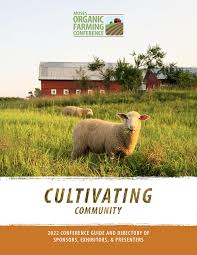
Organic farming conferences offer invaluable opportunities for professionals and enthusiasts in sustainable agriculture to come together and share knowledge. These gatherings typically feature a diverse lineup of speakers, including leading researchers, seasoned practitioners, and industry experts, who present the latest advancements, trends, and innovations in organic farming. Attendees can participate in workshops, panel discussions, and networking sessions designed to enhance their understanding of organic practices, from soil health and pest management to market trends and certification processes. Additionally, these conferences often showcase cutting-edge technologies and sustainable solutions that can be applied to enhance productivity and environmental stewardship. By fostering collaboration and dialogue, organic farming conferences play a crucial role in advancing the field, supporting continuous learning, and promoting the adoption of best practices that contribute to healthier soils, ecosystems, and food systems.

One of the main attractions of these conferences is the opportunity to hear from leading experts who present cutting-edge research and emerging trends in organic farming. Topics covered often range from soil health and pest management to crop rotation techniques and sustainable practices that align with organic principles. By attending these conferences, participants can gain valuable insights into new methods and technologies that can enhance productivity while adhering to organic standards. For instance, workshops might focus on practical skills such as composting techniques, organic pest control, or innovative approaches to soil fertility management.
The interactive nature of organic farming conferences enhances the learning experience for attendees. Sessions often include Q&A segments, hands-on workshops, and group discussions that allow participants to engage deeply with the content. This level of interaction ensures that attendees can address specific questions and challenges they face in their own farming practices, making the information presented at these conferences directly applicable to their work. For example, a workshop on organic soil management might involve participants working together to develop customized soil improvement plans based on their local conditions and crop needs.
Moreover, the importance of organic farming conferences extends beyond their immediate impact on attendees. These events also contribute to the broader goals of environmental conservation and sustainable food systems. By promoting organic practices that enhance soil health, reduce chemical inputs, and support biodiversity, these conferences help to advance agricultural methods that are both environmentally friendly and economically viable. The knowledge and networks gained through participation can lead to broader adoption of organic practices, ultimately benefiting the health of ecosystems and communities.
In conclusion, organic farming conferences are a cornerstone of the sustainable agriculture movement, providing invaluable opportunities for learning, networking, and innovation. They offer a platform for exploring the latest research and technologies, addressing industry challenges, and celebrating the successes of the organic farming community. Through interactive sessions, expert presentations, and collaborative discussions, these conferences help to drive progress in organic agriculture, supporting the development of practices that promote environmental stewardship and sustainable food production. By attending and participating in organic farming conferences, stakeholders contribute to the ongoing evolution of the organic farming sector, ensuring its continued growth and impact in fostering a more sustainable future.









